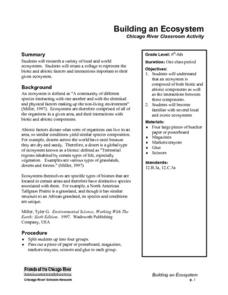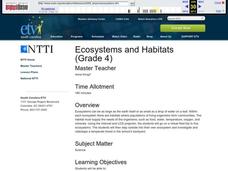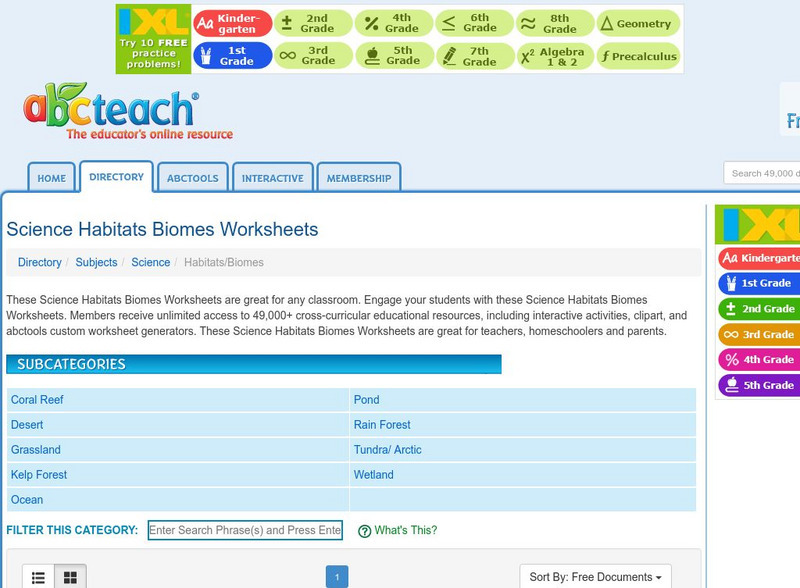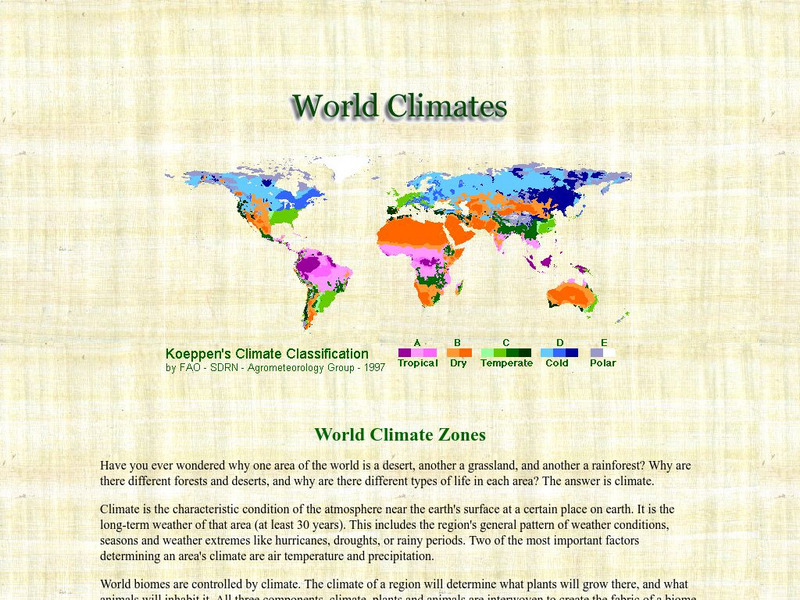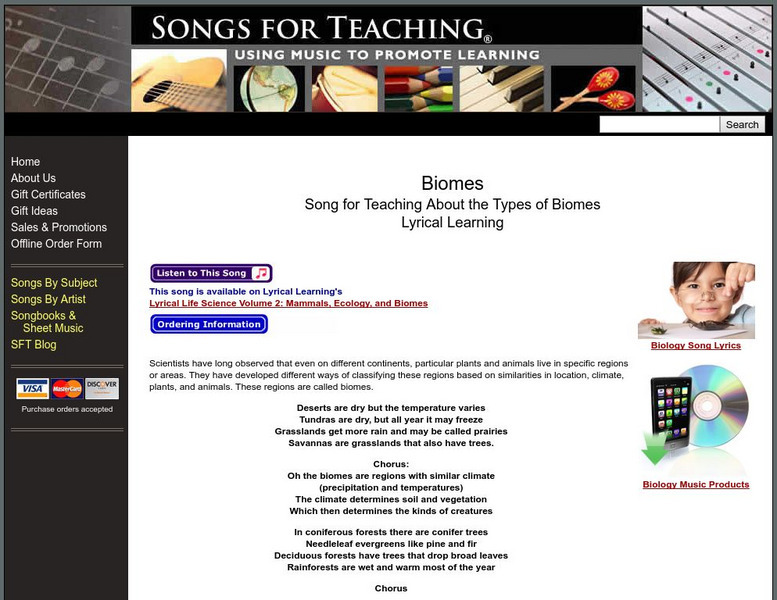Curated OER
California Biodiversity
Students examine several maps of California exhibiting features such as precipitation, topography, and vegetation. They look for patterns that might be the source of or influence biodiversity in different regions. They pay particular...
Curated OER
Building an Ecosystem
Students research a variety of local and world ecosystems. Students will create a collage to represent the biotic and abiotic factors and interactions important to their given ecosystem.Students will understand that an ecosystem is...
Curated OER
A Growing Success
Students create a multimedia presentation as a culmination of a plant unit. In this hyperstudio lesson, students research from assigned sites and create a Hyperstudio stack. Students write a cinquain.
Curated OER
Close to Home
Fourth graders examine habitats for animals by creating their own in class environment. In this environment lesson, 4th graders research the Internet for information on certain wild animals and the places in which they live....
Curated OER
Ecosystems Connect
Students investigate ecosystems near their school and across the world. They examine both living (biotic) and non-living (abiotic) elements of each. They recognize ecosystems from various continents around the globe. The use of computers...
Curated OER
Ecosystems and Habitats
Fourth graders go on a virtual field trip to five ecosystems. They investigate and videotape a temperate forest in the school's backyard.
Curated OER
Salinity Of Soil
Fourth graders investigate the contents of various types of soil to determine the differences in salinity levels. They conduct an experiment of observing the plants in the different soils. Students then determine survival rates by...
Curated OER
Animal Life Histories Derived From Morphology
Learners learn the mechanisms of natural selection by deducing information from the physical appearance of the animal.
PBS
Pbs Learning Media: Biomes
This interactive resource adapted from NASA describes the different temperature, precipitation, and vegetation patterns in seven biomes: coniferous forest, temperate deciduous forest, desert, grassland, rainforest, shrubland, and tundra.
University of California
Ucmp: The Desert Biome
Learn about the four types of deserts: hot and dry, semiarid, coastal, and cold with this key facts and information. Includes links to other biomes: aquatic, forest, grasslands, and tundra.
Enchanted Learning
Enchanted Learning: Biomes
Discover the hidden treasures in the different habitats on the earth! The earth is filled with many biomes. Examples of different biomes are listed and include hyperlinks to additional information such as the animals found there.
abcteach
Abcteach: Habitats and Biomes
[Free Registration/Login Required] Find a variety of activities for children to do as they learn to identify varying habitats and biomes. Included are links to an even more extensive list of resources under coral reef, desert, grassland,...
University of California
Ucmp: The World's Biomes
This is an introduction to the major biomes on Earth. This page groups biomes into five major types: aquatic, deserts, forests, grasslands, and tundra. Information on climate, animal/plant life, and much more is given for each of type...
University of California
Ucmp: The World's Biomes
The University of California Museum of Paleontology hosts this site devoted to the study of the earth's biomes, which are the world's major communities, classified according to the predominant vegetation and adaptations of organisms to...
Palomar Community College District
Major Biomes of North America
A good review of basic terminology followed by descriptions and pictures of the North American biomes.
Scholastic
Scholastic: Study Jams! Science: Ecosystems: Biomes
A video and a short multiple-choice quiz on the topic of biomes, and the six different types that are found on Earth.
Other
World Biomes
World Biomes is a site covering five of the major world biomes: aquatic, desert, forest, grassland, and tundra. It gives information on the various sub-divisions of the biomes and provides numerous images.
Mocomi & Anibrain Digital Technologies
Mocomi: Major Biomes of the World
Covers the major types of biomes: tropical rain forest, arctic tundra, coniferous forest, deciduous forest, desert, grasslands, and mountains.
Songs for Teaching
Songs for Teaching: Biomes
Use this site to see how many of the animals and plants that your students can remember from each biome after listening to this song.
Everything ESL
Everything Esl: Forest, Deserts and Grasslands
Biomes and Ecosystems unit will increase the interest of the ELL learners. Lessons are based on the TESOL, ESL standards.
Other
Blue Planet Biomes: World Climates
Have you ever wondered why one area of the world is a desert, another a grassland, and another a rainforest? Why are there different forests and deserts, and why are there different types of life in each area? The answer is climate.
Songs for Teaching
Songs for Teaching: Types of Biomes
Doug Eldon performs this great song which tells about the different biomes and their characteristics. Great way to begin your unit on the biomes.
Other
Introduction to the Biosphere: Characteristics of the Earth's Terrestrial Biomes
From Chapter 9 of a textbook on physical geography that covers the biosphere. Important vocabulary is highlighted and linked to a glossary. It explains the characteristics of a biome, and describes the features of the eight different...
NASA
Climate Kids: 10 Interesting Things About Ecosystems
Discover 10 interesting things about ecosystems, including features of coral reefs, rainforests, deserts, grasslands, freshwater ecosystems, the tundra, the ocean floor, wetlands, boreal forests and big cities.

